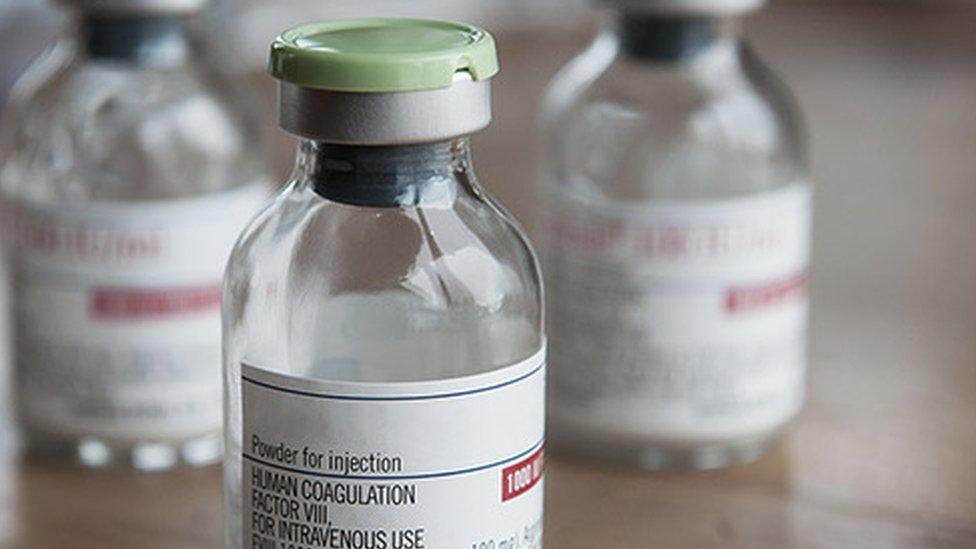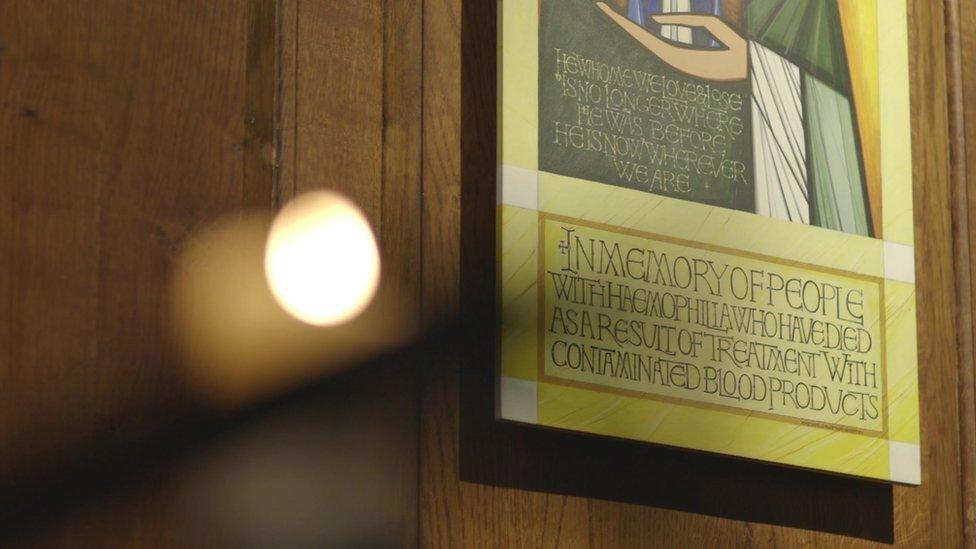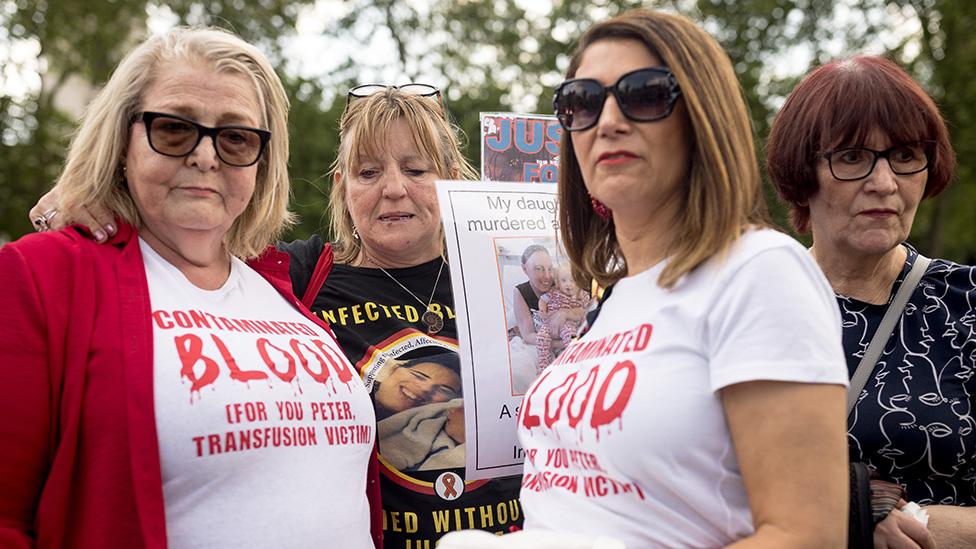Contaminated blood inquiry: 'I want their voices to be heard' - Hancock
- Published
Su Gorman’s husband Steve was diagnosed with hepatitis C 21 years after first receiving contaminated blood products
The health secretary has acknowledged the pain and suffering of victims of the contaminated blood scandal, saying the government would pay compensation if recommended to.
Matt Hancock was facing questions at a public inquiry into what's been called the worst NHS treatment disaster.
Around 3,000 people died after being given blood products containing HIV and hepatitis C in the 1970s and 1980s.
Mr Hancock said he wanted "to make sure their voices are heard".
And he said the government would pay compensation if the inquiry decided it should.
Currently, victims and families get financial support but have not been compensated for loss of earnings, care costs and other lifetime losses.
Ministers announced a public inquiry in 2017 after decades of campaigning by victims and their families.
Nearly 5,000 people with the blood disorder haemophilia were infected with potentially fatal viruses after being given a clotting agent called Factor VIII.
Much of the drug was imported from the US, where prisoners and other at-risk groups were often paid to donate the plasma used to make it.
Victims included dozens of young haemophiliacs at a boarding school in Hampshire who died after contracting HIV as a result.
Tens of thousands more victims may have been exposed to viral hepatitis through blood transfusions after an operation or childbirth.

Factor VIII was often imported from the US in the 1970s and 1980s
Families of victims of the scandal have long fought for annual support payments to be increased and full compensation to be paid.
In March ministers said that families in England who lost relatives as a result of the scandal will receive the same support payments as those in other parts of the UK.
Treasury minister Penny Mordaunt said bereaved partners would automatically get a £10,000 lump sum.
But campaigners say some families have been excluded from the scheme, including children who lost parents to HIV at the time.
The UK government has now said that full compensation could be paid in the future, depending on the outcome of the inquiry.
That is likely to pave the way for much larger payments covering lifetime loss of earnings and ongoing care costs.
Ministers have appointed the retired barrister Sir Robert Francis to carry out a study looking at different options for compensation, and to report back with recommendations, before the inquiry publishes its conclusions.
"This is a huge move but if they decide to base compensation on what the inquiry decides, that gives them another two or three years before they have to find a penny," said Su Gorman, whose husband Steve Dymond died aged 62 in December 2018 of organ failure linked to hepatitis C.
"If they really wanted to pay compensation, they could find a way of doing it which would not prejudge the inquiry."
Video statements were played at the start of the public inquiry in September 2018
The public inquiry, led by Sir Brian Langstaff, has been examining the circumstances surrounded the contaminated blood scandal since 2018.
Hundreds of people who were infected with HIV and hepatitis C or their family members have already given evidence, with hearings held at sites across the UK.
The inquiry is examining how and why the infections occurred, what was known at the time about the risks of the treatments, and whether patients were given sufficient warnings about the dangers involved.
Evidence hearings are scheduled to continue into next year with a final report likely to be published in 2022 or 2023.

A book of remembrance for haemophiliacs who died in the contaminated blood scandal is displayed at St Botolph's Church in the City of London
A spokesperson for the Department of Health and Social Care said: "The infected blood tragedy should never have happened. The ongoing public inquiry was set up to establish the truth and give individuals and families the answers they rightly deserve.
"We've always been clear that those who have been affected by this tragedy should be supported by a fair and transparent support scheme focused on their welfare, providing some security and consistency.
"The government has listened to the call for parity of support across UK and in March announced a package for the whole of the UK which will bring greater uniformity to the four National support schemes."
